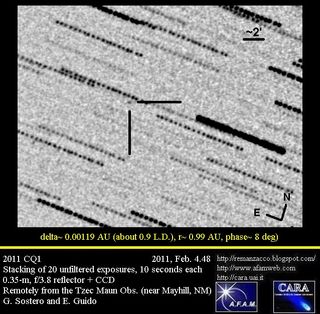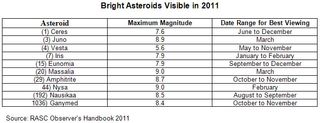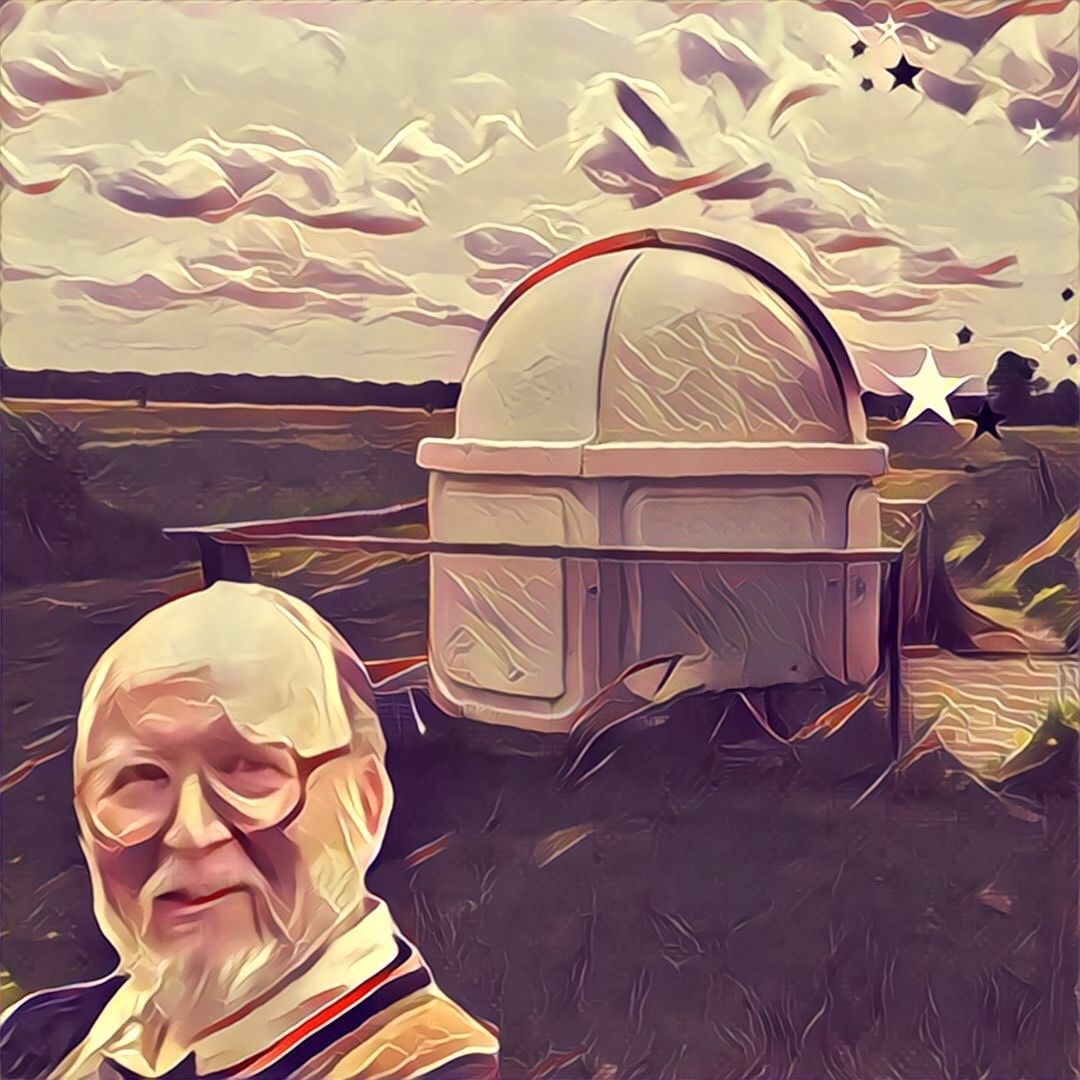Bright Asteroids of 2011 - Viewer's Guide

The following asteroids are expected to become brighter than magnitude 9 (on the reverse scale used by astronomers to measure brightness) and more than 90 degrees from the sun during 2011.

Telescopes or binoculars are typically vital to spotting even the largest, brightest asteroids in deep space.
This chart above details the major asteroid targets, as well as their expected brightness and the best moths in which to look for them. Consult a skywatching almanac for their anticipated locations in the night sky at specific dates.
This article was provided to SPACE.com by Starry Night Education, the leader in space science curriculum solutions.
Get the Space.com Newsletter
Breaking space news, the latest updates on rocket launches, skywatching events and more!
Join our Space Forums to keep talking space on the latest missions, night sky and more! And if you have a news tip, correction or comment, let us know at: community@space.com.

Geoff Gaherty was Space.com's Night Sky columnist and in partnership with Starry Night software and a dedicated amateur astronomer who sought to share the wonders of the night sky with the world. Based in Canada, Geoff studied mathematics and physics at McGill University and earned a Ph.D. in anthropology from the University of Toronto, all while pursuing a passion for the night sky and serving as an astronomy communicator. He credited a partial solar eclipse observed in 1946 (at age 5) and his 1957 sighting of the Comet Arend-Roland as a teenager for sparking his interest in amateur astronomy. In 2008, Geoff won the Chant Medal from the Royal Astronomical Society of Canada, an award given to a Canadian amateur astronomer in recognition of their lifetime achievements. Sadly, Geoff passed away July 7, 2016 due to complications from a kidney transplant, but his legacy continues at Starry Night.
